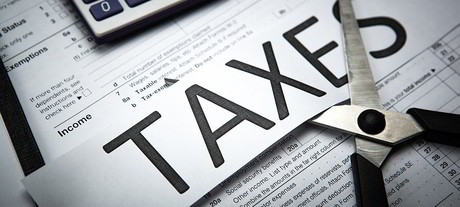UK to tax digital services revenue

The UK government plans to introduce a new Digital Services Tax aimed at forcing the major technology companies to pay tax on the sales they generate in the market.
The new tax, announced during the 2018 Budget, will be introduced from April 2020, according to Chancellor Philip Hammond.
It will be specifically targeted at established tech giants and is expected to raise over £400 million ($722.4 million) per year in additional tax revenue.
“Digital platforms delivering search engines, social media and online marketplaces have changed our lives, our society and our economy, mostly for the better,” Hammond said.
“But they also pose a real challenge for the sustainability and fairness of our tax system. The rules have simply not kept pace with changing business models. And it’s clearly not sustainable, or fair, that digital platform businesses can generate substantial value in the UK without paying tax here in respect of that business.”
The new tax will only be paid by companies which are profitable and generate at least £500 million a year in global revenues from the digital services falling under the scope of the new tax rule.
It would be a proposed 2% tax on the revenue that these large digital companies earn in the UK from sources including display advertising and commissions from online marketplaces.
The companies presently only pay taxes on profits rather than revenues, and their practice of transferring revenues to countries with lower tax rates and claiming minimal profit from the country these revenues were earned in has been a contentious issue among governments worldwide.
But Hammond stressed that a global solution to fair taxation revenue for digital services would be preferable. The UK has already been working with the member countries of the OECD and the G20 — which includes Australia — on such a solution, but Hammond said progress has been “painfully slow”.
He said the government will continue to work with the OECD and G20 to seek a globally agreed solution, and if such a solution emerges, the government will consider adopting it instead.
The EU is already reportedly considering implementing its own 3% digital levy for large technology companies.
The UK government has also announced plans to conduct a formal review into its 2% tax in 2025.
While the new tax has the potential to generate substantial new revenue for the government, technology industry advocacy group techUK has expressed concerns that it could impact significantly smaller companies than anticipated, discourage investment in the UK’s technology sector and taint the market’s reputation as a good place to start a technology business.
Please follow us and share on Twitter and Facebook. You can also subscribe for FREE to our weekly newsletter and quarterly magazine.
Private AI: from sovereignty obligation to business advantage
Private AI makes innovation sustainable in environments where regulatory scrutiny, customer...
ROI doubts and data gaps erode Australian tech leaders' decision confidence
Industry confidence is in decline as technology leaders grapple with the intangibility of...
Rethinking cyber defences in the age of continuous threat exposure management
Continuous threat exposure management turns compliance from a snapshot into an ongoing process of...




